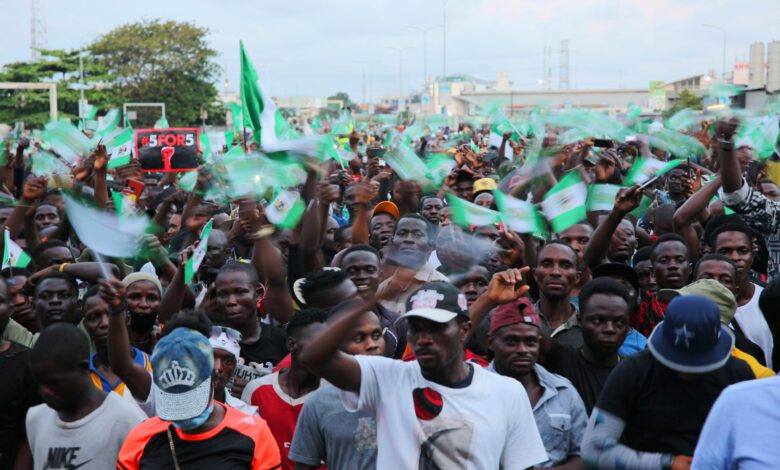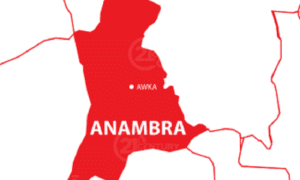


Proposed protest and its security implications
By Amb. Ezekiel Isidahomen, Ph.D
A palpable sense of unease settles over the nation as a planned protest approaches, reviving haunting memories of the destructive mayhem that marred the last major demonstration. With the spectre of another potentially volatile gathering looming, concerns about public safety and security are mounting.
The government faces mounting pressure to maintain order and prevent a repeat of the widespread chaos and devastation that left the country reeling. As tensions escalate, the nation waits with bated breath, hoping for a peaceful resolution.
Section 40 of the Nigerian Constitution guarantees the right to peaceful assembly and protest. It states, “Every person shall be entitled to assemble freely and associate with other persons, and in particular, he may form or belong to any political party, trade union, or any other association for the protection of his interests.”
Additionally, Section 39(1) provides for the right to freedom of expression, including the right to hold and express opinions, receive and impart ideas. However, these rights are not absolute and can be subject to reasonable restrictions, as stated in Section 45(1), which allows for limitations in the interest of defence, public safety, public order, public morality, or public health.
Having examined the constitutional provisions regarding protest, we can now reasonably ask: what are the security implications of the proposed protest? If not well-managed and coordinated, the protest could have significant security implications for citizens, the government, and the nation.
The protest could degenerate into violence between protesters, security forces, or rival groups, hoodlums, and foreign mercenaries, as speculated in some quarters. It could also result in disruption of public order, as evidenced in past protests where roadblocks were mounted with burning fires, vandalization, looting, and general chaos.
Other security implications of the protest include threats to critical infrastructure like airports, seaports, banks, markets, government/private buildings, and supermarkets, which were looted during the 2020 EndSARS protest.
Protests are often associated with increased crime rates, creating opportunities for criminal activities to thrive. They could also result in ethnic or religious tensions, heightening existing tensions and leading to communal clashes.
Human rights violations and excessive use of force by security agents are common experiences during protests, often leading to injuries, fatalities, and further escalating the situation. Prolonged or intense protests could challenge government authority, leading to political instability.
To mitigate these risks, the government should engage with protest leaders/organisers in dialogue and find peaceful solutions to the issues raised. The government should caution security agencies on the use of force, prioritising de-escalation techniques, and deploy security personnel to ensure adequate protection of national critical infrastructure.
The government should work assiduously to resolve the underlying issues driving the protest. URGENT ACTION, TWO DAYS TO GO. The government, at all levels (federal, state, and local), should engage with critical stakeholders, identified protest leaders, organisers, masterminds, youth leaders of various socio-cultural and economic organisations/associations through physical (town hall meetings) or Zoom meetings between today and tomorrow.
During the meeting, all achievements/challenges of the present administration should be highlighted, and policies/programs explained. The President should urgently address the nation between now and tomorrow (Wednesday) and appeal to protest leaders/organisers, critical stakeholders to call off the protest, assuring them that his administration is committed to alleviating the economic hardship Nigerians are facing.
State governors, local government chairmen, eminent Nigerians, traditional rulers, clerics/religious leaders should equally launch similar appeals, urging them to call off the protest. Members of the House of Senate, House of Representatives, and all ministers should also dialogue and appeal with organisers in their various states/constituencies to call off the proposed protest.
The achievements, challenges, policies, and programs of the present administration aimed at alleviating the suffering of Nigerians should be explained to them.
All state governors in the 36 states of the federation are advised to follow the step taken by the governor of Osun state, Senator Ademola Adeleke, who scheduled a meeting yesterday, 29th July 2024, to dialogue and engage with organisers, critical stakeholders, security, and civil society groups.
The government and security agencies, particularly the police and army, should avoid using threats and intimidation on protesters, organisers, and leaders of the proposed protest. Instead, efforts should be made to identify leaders and engage them in meaningful dialogue, as threats could popularise the protest.
The President should caution some ministers against unguarded statements and utterances capable of inciting people and further escalating the situation. Government officials and political office holders should be sensitive and avoid careless statements while communicating with the public through press interviews, press releases, and social media.
Amb Isidahomen, Phd, (JP), FIMS (UK), DFLMMD, FCP, FIMC, MNIM, CMC is a security consultant and the MD/CEO, Thems Security Services Limited, Lagos.



